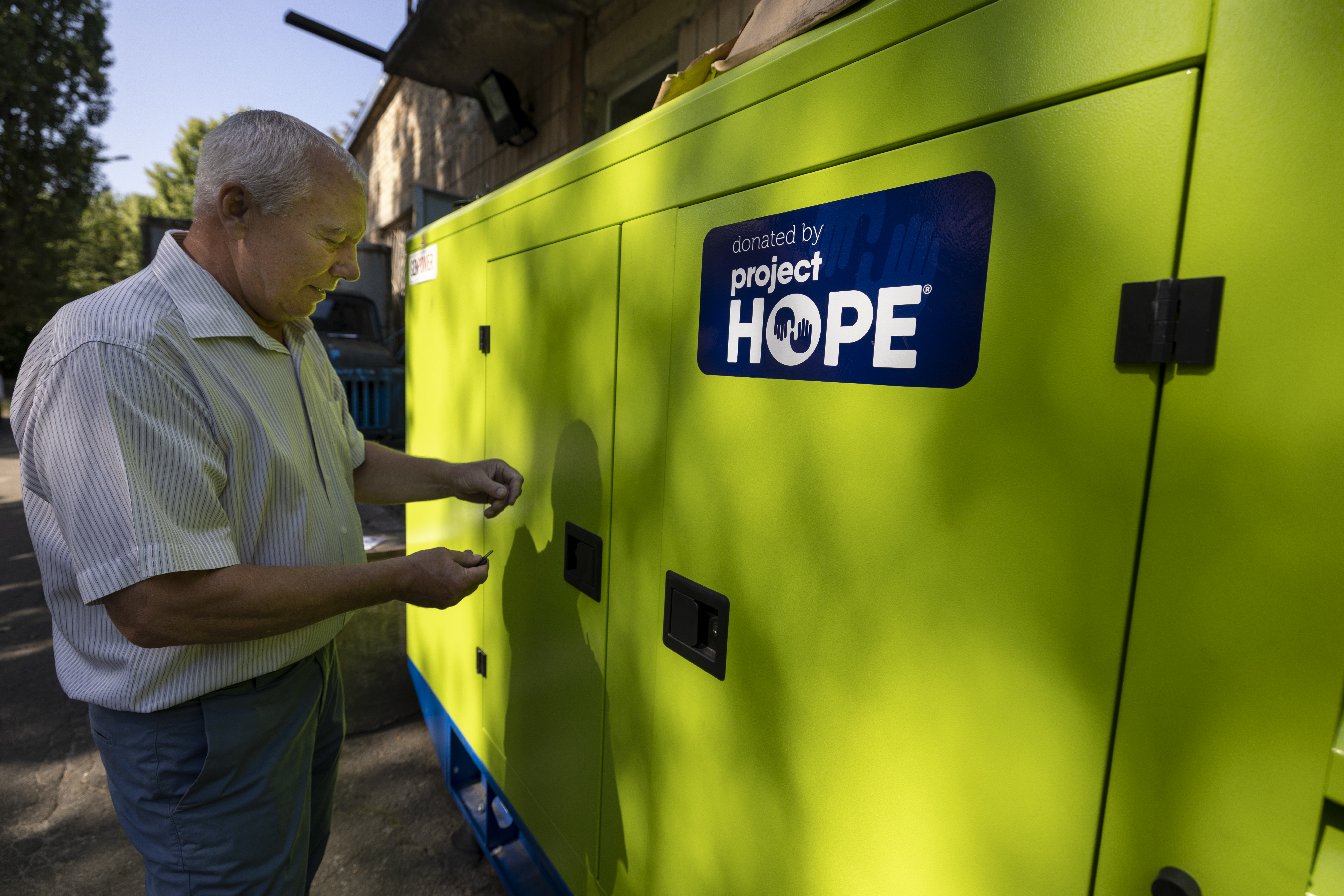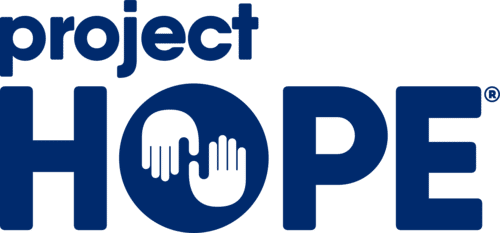Every year, we work to improve access to health care in the world’s most challenging settings and improve health equity among those who need it most. This year was no different. We responded to catastrophic natural disasters. We showed up on the front lines of urgent and complex humanitarian crises. We continued the fight against COVID-19. We ensured healthier futures for pregnant women, new mothers, and children in places like Colombia, the Dominican Republic, Indonesia, Sierra Leone, and North Macedonia. We protected people living with or affected by HIV in countries including Namibia, Nigeria, and Zambia, and we empowered young people to take charge of their health and minimize the risk of noncommunicable disease. None of this would have been possible without your support. Here are four ways you helped us make an impact in 2022. 1. You helped rush emergency relief to Ukraine. Project HOPE has delivered more than $6 million in relief to Ukraine, including essential medicines, medical supplies, and children’s kits. Over the coming year, additional support from the Bureau of Humanitarian Assistance will help us reach more than 1.25 million people inside Ukraine. Thousands of civilians and medical workers have been killed and millions of Ukrainians have fled home since conflict broke out in Ukraine on February 24, 2022. In the first few days of Russia’s invasion, your support helped us rush essential medicines and medical supplies to affected areas inside Ukraine and across Moldova, Poland, and Romania. Since the end of February, Project HOPE’s work in Ukraine has grown and evolved as our team on the ground meets the most urgent health needs. To date, Project HOPE has delivered 302 pallets of aid worth $6.6 million to 97 health facilities in need inside Ukraine. The pallets include medicines, medical supplies, insulin, needles, hygiene kits, emergency health kits, surgical kits, and children’s kits. The Project HOPE team has also provided more than 16,000 medical consultations in Ukraine and mental health and psychological support to more than 14,000 Ukrainians in Ukraine, Moldova, Poland, and Romania. As the war goes on, our response continues to expand. Today, we are establishing hubs of support, rehabilitating hospitals, supporting mental health efforts, and have even provided personal legal consultations for the restoration of personal documents. Outside Ukraine, our work continues to support refugees in need across Moldova, Poland, and Romania. We continue to coordinate with local NGOs, hospitals, and government officials, as well as the World Health Organization Health and Logistics Clusters, Ministries of Health, and other authorities. Thanks to additional support from the Bureau of Humanitarian Assistance, Project HOPE will reach more than 1.25 million people inside Ukraine in the coming year. 2. You lifted up communities after devastating disasters. Hurricane Ian destroyed James’s home in Florida, and with it the insulin he needs to manage his diabetes. Project HOPE’s response to Hurricane Ian delivered insulin and other relief like medical supplies and psychological first aid to populations in need. Your support this year helped us provide care for survivors of natural disasters in Puerto Rico, the Dominican Republic, Florida, and beyond. In September, Project HOPE responded to the urgent needs of those affected by Hurricane Fiona, which caused catastrophic flooding in Puerto Rico and left more than 1 million people without water and electricity across Puerto Rico and the Dominican Republic. Our emergency teams visited shelters and affected communities to deliver support like medical supplies, PPE, and disaster hygiene kits. In Puerto Rico, we mobilized local medical staff and mental health support for home visits within impacted communities to provide care and case referrals to local clinics. When Hurricane Ian struck Florida, we were able to act quickly and preposition an emergency response team before the storm made landfall. This allowed us to access the most affected areas within the first 12 hours. We provided psychological first aid, medical support, and much-needed supplies within evacuation shelters, special needs shelters, and health clinics. We also distributed more than 250,000 relief items like water and first-aid kits to the most vulnerable and marginalized populations: elderly citizens, people with disabilities and pre-existing conditions, those living in poverty, and people who are undocumented. In Haiti, Project HOPE continued helping communities access essential health care services and recover from the long-term impacts of last year’s devastating earthquake. With support from the Bureau for Humanitarian Assistance, we connected communities to care through support like mobile clinics, clean water filters, and donations of medical supplies to equip doctors and nurses on the ground. 3. You delivered relief to people living through urgent humanitarian crises. Project HOPE is helping return health care to communities near rural Tigray, Ethiopia, where families have begun to return after years of conflict. We showed up on the front lines of some of the world’s worst humanitarian crises this year, reaching affected populations with the lifesaving health services needed to persevere. In Ethiopia, where drought, conflict, and widespread displacement put millions of lives at risk, we increased our number of mobile health and nutrition teams to be able to provide health care to people living in IDP camps and near areas of conflict. We provided essential medicines, vaccines medical supplies, and ready-to-use therapeutic foods, with a focus on supporting women, children, and people living with or affected by HIV. We also trained health workers to be able to provide mental health services. In Colombia, we were able to provide surge support for Venezuelan migrants near the border, especially pregnant women and new mothers. This included hiring health workers, delivering medical equipment, and supporting local partners who provide essential maternal health information. 4. You helped protect vulnerable communities from COVID-19. Project HOPE is supporting charitable clinics across the South to provide free COVID-19 vaccines in Texas, Alabama, Louisiana, Florida, and Georgia. COVID-19 vaccines have been widely available and have proven effective in preventing severe COVID-19 illness, but there were vast disparities in vaccination rates in rural and minority communities across the U.S.—especially in the South. Barriers to access and acceptance included wealth gaps, access to transportation, institutional racism, and discrimination. With support from the Health Resources and Services Administration, Project HOPE helped dozens of free and charitable clinics vaccinate underserved communities across Alabama, Florida, Georgia, Louisiana, and Texas, including San Jose Clinic in Houston. In every location, we ensured everyone—including those who are undocumented, uninsured, or unable to pay—had equal access to lifesaving vaccines.
PROJECT HOPE: 4 Facts: How You Made an Impact in 2022



